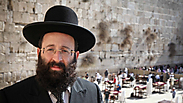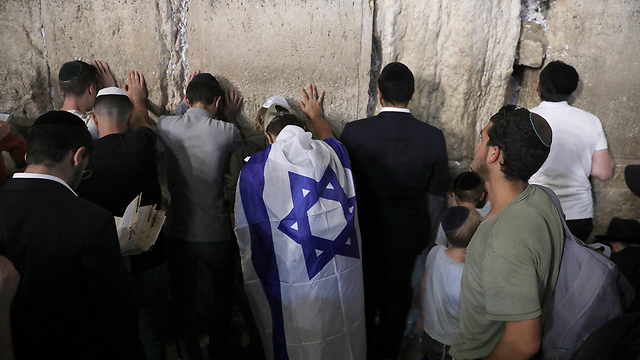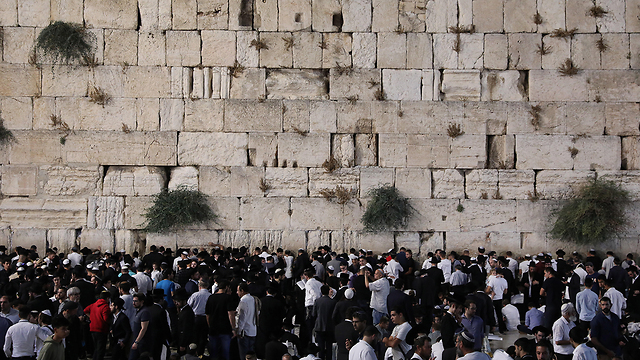
"The Lord has rejected His altar, Disdained His Sanctuary. He has handed over to the foe The walls of its citadels" – Lamentations for Tisha B'Av
In the list of the most bitter enemies of the Jewish people, a place of disrespect is reserved for Roman Emperor Hadrian, whom our sages called "bone-breaking" because of his great cruelty in suppressing the Jews.
Hadrian was the emperor who sent his best warriors to suppress once and for all the spiritual and national aspirations of our ancestors.
He drowned the Bar-Kokhba rebellion in rivers of blood, and to eradicate any hope ordered the erasure of every male of Israel from the face of the earth. He renamed Jerusalem "Aelia Capitolina" and the Land of Israel he called "Palestine."
On a coin minted to mark this victory, Hadrian used an image of him plowing soil on the Temple Mount, which was the Roman custom for founding a new city.
So sure was he of his ability to obliterate the memory of Jerusalem and establish a Roman city in its stead. The sages say that this bitter day also fell on Tisha B'Av.
How then did the wonderous fact that I write these words from Jerusalem come about, when "Aelia Capitolina" is written in the history books?
What power defeated the limitless might of the predatory Roman Empire, which sought to erase the memory of our people and the city of G-d from the world?
Faced with Hadrian's legions and advanced weaponry, the Jewish people had only one thing in their arsenal - faith and the adherence to the return to Jerusalem that was still to come.
Every year, even in the darkest and most dangerous times, Jews came to Jerusalem. At the foot of the Western Wall, they tore their clothes and lamented the sorrow of the exile.
They wet the ancient stones with their tears and placed notes in the cracks between them that bore names and prayers entrusted to them by their communities in exile.
The Western Wall became the symbol of Jewish hope, which united us wherever we were. There was no Jew in the world who did not know the sublime image of the Western Wall, the last relic of the Temple, and draw mental strength from it.
Indeed, from the one remnant that our foes failed to destroy came the rebirth of Israel. We grew new branches, and Jerusalem - whose memory our enemies sought to erase - rose once again.
Today, on Tisha B'Av, thousands of Jews will flock to the Western Wall to mourn the destruction of the Temple and the sorrows of the long exile from our land.
They will tread the same path as their ancestors, who took their lives in their hands to get there and stand in prayer through disgrace and scorn. Today, their descendants will come here too, fulfilling the ancient prophecies.
The connection to Jerusalem was not severed. Hope was not extinguished. The nation of Israel lives.
Rabbi Shmuel Rabinovitch is the chief rabbi of the Western Wall


















